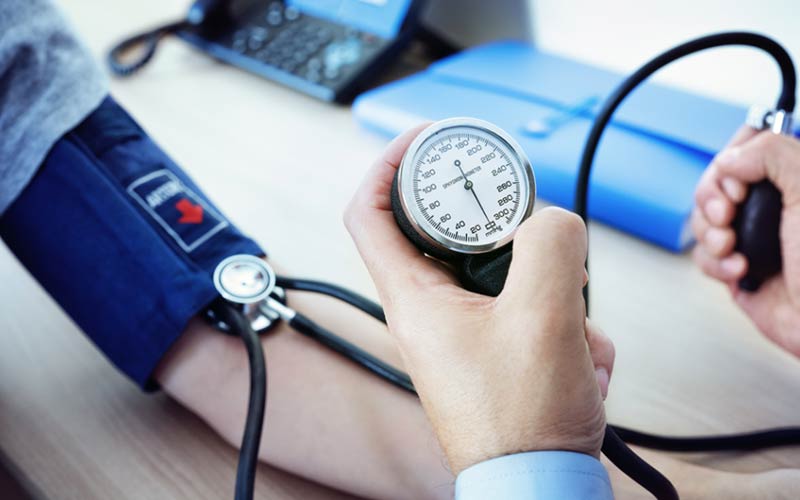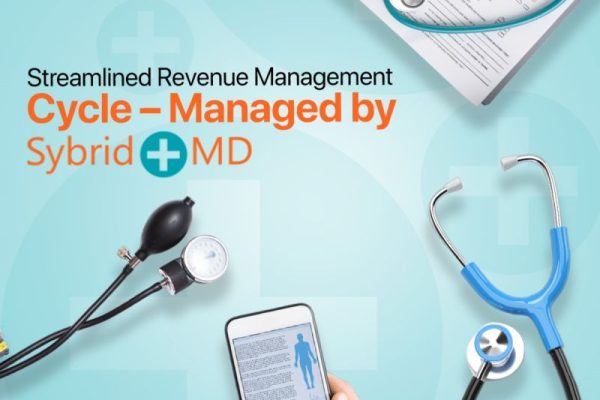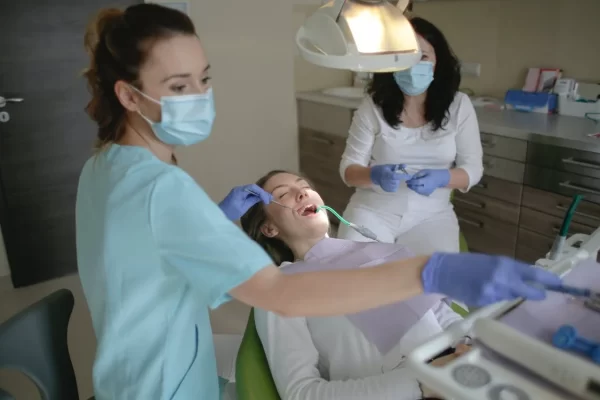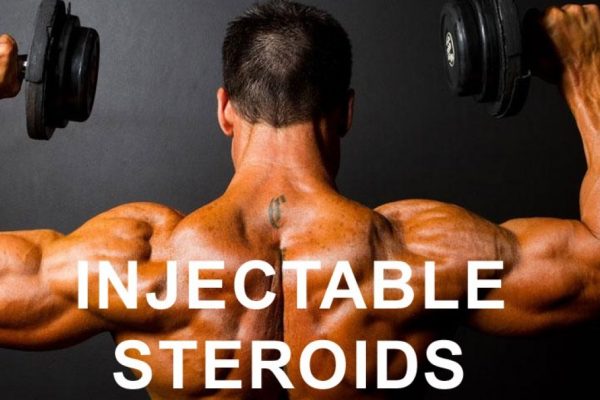Table of Contents
High Blood Pressure- The Risks involved and The Remedy
Do you have high blood pressure? Afraid of things getting out of hand? Take a look at this article. This article provides an insight into the details of blood pressure or BP.
Blood pressure is the force moving the blood through the circulatory system. Every time the heartbeats, blood pushes against the artery walls. It then pumps blood into the arteries. When the heart pumps in blood, the blood pressure is the highest. This is systolic pressure. The diastolic pressure, on the other hand, measures blood pressure at rest. This means the blood pressure is lowest at rest.
The optimum blood pressure is 120/80 mm/Hg. The first number denotes the systolic pressure. Whereas the later indicates diastolic pressure. Very high blood pressure will be 140/90 mm/Hg and above. At the same time, low blood pressure will be 130/80 mm/Hg and lower. A blood pressure of 180/120 is exceptionally high. This will require immediate medical attention. It is best to keep a check-up once every six months.
Types of high blood pressure
Two types of high blood pressure are encountered.
Primary high blood pressure is essential and most well-known. This is the type that a person gets at a certain age. This BP keeps growing as you age.
Certain medical conditions or medicines may cause secondary high blood pressure. It is usually cured after treatment. Besides, not taking the medication may also cure it.
Blood pressure may stay high for some time for some people. This will cause the heart to pump blood harder. Besides, the heart is having to work overtime. This causes serious heart problems—some of the major ones being stroke, heart attack, heart failure, kidney failure.
Usually, specific lifestyle changes and medications can treat high blood pressure. However, some cases may need immediate hospitalization. This happens when complications arise.
Natural Ways to Lower Blood Pressure
Let’s get an insight into how to lower blood pressure naturally and quickly.
1. More exercising and increased activity
A study was conducted in 2013. Some sedentary old adults participated in aerobic exercise training. These people were able to lower their blood pressure. The average reduction was 3.9 percent systolic pressure and 4.5 percent diastolic pressure. The results were reasonable compared to known blood pressure medications.
Regular exercises cause an increase in heart and breathing rates. As a result, the heart becomes stronger. Over time, the heart pumps blood with less effort. Consequently, the pressure on the arterial walls reduces. This leads to lower blood pressure.
The American College of Cardiology (ACC) and the American Heart Association (AHA) provided a report in 2013. It advised moderate to vigorous physical activity. It must be an intense 40-minute session. The workout routine must be repeated at least four to five times a week.
For beginners, a 40-minute workout at a stretch may be challenging. In such a case, breaking the workout may work. Three to four segments of the workout per day may help throughout the day. Ten to fifteen minutes of working out in each segment is beneficial for the person.
However, it does not indicate running a marathon. Lowering blood pressure may be as simple as using the stairs or doing household chores. Other activities include walking instead of taking the elevator. Gardening, playing a team sport, or a bicycle ride may be equally effective. Doing a moderate workout regularly for half an hour is very useful.
A moderate activity to reduce high blood pressure tai chi. A study conducted in 2017 revealed its relation to blood pressure. A drop of 15.6 mm per Hg of systolic pressure 10.7 mm of Hg of diastolic pressure was seen. A combination of low blood pressure and exercise was seen in a 2014 study.
High-intensity training, aerobic exercising, resistance, and interval training lowers blood pressure. Short amounts of exercise per day are beneficial for the heart. Walking up to 10.000 steps per day is also useful in lowering blood pressure.
Exercising or engaging in daily activities will lower hypertension. This reduces the risk of severe damage to the heart.
2. Weight loss for better heart health
Being overweight for your age and height has a significant impact on heart health. Hence, reducing up to five to ten pounds can help. As an s result, the blood pressure will be lower over time. A 2016 study reveals that diets for weight loss reduce blood pressure. The average reduction in systolic blood pressure is 4.5 mm Hg. The reduction in diastolic blood pressure is 3.2 mm Hg.
3. Cutting back on sugar and refined carbohydrates
Try to restrict sugar intake. Cut back on refining carbohydrates. This will help you to lower the blood pressure. Besides, weight loss will also take place. A study took place in 2010 comparing low carb and a low-fat diet. The results revealed the low carb diet to be more effective than a low-fat diet.
The low carb diet reduced systolic blood pressure by 5.9 mm Hg. At the same time, the diastolic blood pressure was reduced by 4.5 mm Hg. A diet drug followed the low-fat diet—this reduced systolic blood pressure by 1.5 mm Hg. 0.4 mm Hg reduced the diastolic pressure.
An analysis was done in 2012. It revealed diets lowered heart disease risk. The reduction was 4.81 mm Hg of systolic pressure. 3.10 mm Hg of diastolic pressure was reduced.
Beside low carb, low sugar diet keeps you fuller for hours. This is because of the consumption of more fat and protein.
4. More potassium. Reduce sodium in your diet
Increase potassium intake in your diet. Make sure to cut down on the sodium consumed every day. Potassium is hugely beneficial for your body.
It plays a dual role. It reduces the effect of sodium in diet. Besides, it reduces tension in the blood vessels. This ensures the blood pressure reduces. However, it has some drawbacks. Individuals with kidney disease may not be able to follow this step. Hence, take recommendations from the doctor. Surprisingly, it is easy to intake potassium in the diet.
It is found in some of the most commonly eaten foods. They are low-fat dairy foods such as yoghurt and milk. For lactose-intolerant individuals, other options are available. Some of them are fish, bananas, avocados, oranges. Potassium is found in abundance in leafy green vegetables like spinach. Potatoes, sweet potatoes, tomatoes are among the other potassium-rich vegetables.
People respond differently to salt intake. People may be salt sensitive. This indicates salt may increase blood pressure in those individuals. People can be insensitive to salt as well. They may have a high salt intake. Next, the excretion through urine occurs. All this may happen without any increase in blood pressure.
The National Institutes of Health (NIH) recommended low salt intake. This is possible by following the Dietary Approaches to Stop Hypertension diet or the DASH diet. This diet focuses on low sodium foods, low-fat dairy products, fruits, and vegetables. Besides, whole grains, poultry, fish, beans are allowed. Reduce the intake of sweet and red meat when following this diet.
5. Eating less processed and canned foods
The processed food from restaurants has more sodium than your table salt. Deli meats, sausages, salami, cured meat, canned fish have high salt amounts. Besides, canned soups, frozen pizza, chips, and processed snacks also contain many salts.
The foods that are labelled as ‘low fat’ can have hidden monsters in it. These foods are laden with sugar and salts. This compensates for the loss of fat. Fat makes your food taste better and keeps you fuller. Try to cut down on processed food gradually.
Completely cutting out processed food lowers salt intake. Less sugar and refined carbohydrates are also eaten less in the process. This will help you to reduce blood pressure levels.
6. Quit smoking
People say it takes 21 days to create and destroy a habit. We can follow this rule to cut out tobacco from our lifestyles. Smoking can cause damage to your all-around health. It may cause an immediate and temporary increase in blood pressure. It also increases heart rate.
In the long term, tobacco can cause serious damage to arteries in the heart. It may also cause inflammation. Narrowing of arteries also occurs. Even a passive smoker can have damage to blood vessels. A study conducted revealed children in smoking homes. The results revealed high blood pressure in them compared to nonsmoking houses.
7. Reduction of excessive stress
High blood pressure may occur due to chronic stress. Occasional stress can have a similar result on the arterial walls. This may cause equal amounts of damage to the heart. Increased blood pressure may be temporary or permanent over time. This is possible if you have an unhealthy diet. Smoking and drinking too can have an impact on heart health.
Now the stressors will be present in the form of family, friends, work. Personal matters can also act as a stressor. Here are some of the ways to cope up with stressors.
Firstly, try to change the set expectations. The more you expect, the greater will be the damage of not meeting it. Hence higher will be the disappointment. As a result, heart health will be at risk.
Try to focus on your priorities. Now plan the day accordingly. Learn to say at times. Avoid setting unrealistic goals for the day. Try to keep as much you can finish in the day. However, certain things are beyond our control. Understand to accept such unforeseen circumstances. What you can do is focus on how to react to situations.
Secondly, try to focus on the problems at hand. Now try to come up with practical solutions. For instance, you are having difficulty at work. Try to talk to a colleague, senior, or the manager. This will indeed reduce the stress on you.
On the other hand, you may encounter conflicts with your partner or kids. In such a case, try to calm yourself. Now try to communicate and solve the problem.
Thirdly, avoid triggers of stress. Keep trying to avoid stress triggers whenever and wherever possible. You might be getting late in rush-hour traffic. In such a scenario, try to calm yourself as much as you can. Listen to music. Try to avoid continually checking the time. This will make you all the more anxious. Now focus on taking shortcuts. Avoid containing activities that cause you more stress.
Lastly, sit quietly and relax. Enjoy some activities that you love doing. It may be cooking, dancing, singing, or reading books. Or it may merely be staring out at the sky or sleeping, to be honest. Sleep cures stress like no other. Seek help from family and friends in times of need. Try to express gratitude to them for being with you in times of need.
8. Try to do yoga or meditation
Mindfulness is essential for a healthy mindset. Transcendental meditation has been in practice for ages. It has been known to be the most effective non-medicinal methods to reduce stress. A study on 19,000 people was undertaken in 2012. The study revealed a reduction in high blood pressure and stress due to meditation.
Yoga, on the other hand, involves being mindful when exercising the body. It consists of connecting the soul and the body. The posture control, breathing, and meditation techniques benefit people in stress. Henceforth, the blood pressure reduces with ease.
A study in 2013 showed a reduction in systolic pressure up to 4.17mm Hg. The diastolic pressure was reduced up to 3,62 mm Hg.
9. In stress? Have dark chocolates
Dark chocolate aids in lowering blood pressure. However, the cacao percentage in it must be above 70 percent. This is quite bitter for chocolate. Many won’t find it much appetizing. However, if you are an avid lover of chocolate, give this a try.
A study review indicates having a square to two of dark chocolate. This aids in lowering blood pressure. Besides, it reduces inflammation of the walls of the heart. The benefits seem to come from the flavonoids in it. The flavonoids help to widen or dilate the blood vessels. A study conducted on 14,310 in 2010 showed some results. Having more dark chocolate or cacao solids lowered high blood pressure.
10. Medicinal herbs
Herbal medicines have a long history of treating ailments. Similarly, some of them help to reduce high blood pressure. However, further research studies must be undergone. It will then provide the exact doses and herbs needed for treating high blood pressure.
One must consult the doctor or the pharmacist. This will help them to know the details of the prescribed medications. Some of the commonly used herbs around the world are-
- Celery juice
- Cat’s claw
- Ginger root
- Black bean
- Chinese hawthorn
- Indian Plantago
- River lily
- Giant dodder
- Sesame oil
- Maritime pine bark
- Roselle
- Umbrella tea bark
- Tea
- Tomato extract
11. Sleep your heat out
Sleep is one of the best non-medicinal methods to cure most illnesses. As a result, the blood pressure drops down to the lowest in a deep sleep. If one is not sleeping well, it will affect the blood pressure accordingly. Middle-aged to older people have a higher risk of sleep deprivation.
However, today, the age barrier has crossed. Today a child can be sleep deprived of anxiety or stress. Hence, the result is high bp. Getting to sleep well is a struggle for many people. In such scenarios, some effective methods can help. Try to set a sleep routine. In other words, try to sleep at the same time every day.
Try to take your eyes and mind off social media an hour before sleep. Now keep a relaxing night before you sleep. Make the bedroom comfortable and dark before sleeping. Now you may avoid daytime naps. This, too, can help you fall asleep faster at night.
A study conducted by National Sleep Heart Health indicated some results. Sleeping for less than 7 hours or more than 9 hours increased hypertension levels. The optimum sleep must be 6 to 8 hours at night. Likewise, this will lower the risk of hypertension.
12. High blood pressure? Garlic to the rescue
Raw garlic or garlic extracts are said to lower high blood pressure. A clinical study indicated, having garlic extract as supplements can reduce hypertension. This has a faster effect on the body compared to garlic in tablet form.
A study conducted revealed a lowering of blood pressure. The pressure was reduced by 12 mm Hg of systolic and 6 mm Hg of diastolic pressure. The ancient remedy works wonders to date.
13. Eat heart-healthy, protein-rich foods
Protein-rich foods are said to lower high blood pressure over time. A high protein diet may, however, not consumable for people with kidney disease.
One can easily consume up to 100 grams of protein in the diet every day. Protein-rich foods include salmon, eggs, poultry such as chicken breast and beef. Beans and legumes may consist of kidney beans and lentils. Nut or butter is also high in protein. Nut butter is such an example. Chickpea and soybeans are among other protein-rich foods.
14. Lower alcohol consumption. Cut back on alcohol intake
Alcohol can affect heart health. It increases the blood pressure. It may be so even for a healthy person. With every 10 grams of alcohol consumed, blood pressure increases by 1mm Hg. Hence one must try to drink in moderation. An average drink has 14 grams of alcohol, to be precise. Women can have one drink a day. Whereas for men, two drinks a day must be enough.
Coming to caffeine, the effect is temporary; caffeine temporarily raises the blood pressure. It lasts for 45 minutes to an hour at the max. However, some people are caffeine-sensitive. They may try decaffeinated coffee.
Risks of high blood pressure
Some of the significant risks of high blood pressure are stated below.
Damaging the arteries
Healthy arteries are robust, elastic, and flexible. The inner linings are smooth. Blood flows freely from and into the heart. It supplies blood to the vital organs. It provides nutrients and oxygen to the blood. Hypertension tends to increase pressure inside the arterial walls gradually. This may result in damaged arteries.
High blood pressure causes damage to the inner linings of the arterial walls. The fat consumed may enter the bloodstream. Through it, the arterial walls become less elastic. This will eventually limit blood flow throughout the body. The constant blood pressure causes a section of the artery to enlarge and bulge. This is commonly known as an aneurysm. The potential rupture of an aneurysm is risky.
Internal bleeding may also occur. This may cause severe life risks. This can happen in any artery. The most commonplace for aneurysms is the aorta.
Damage to the heart
Several heart problems are encountered. Some of them are-
- Coronary artery disease- the arteries are damaged and narrowed down at this rate. The high bp is causing trouble in pumping blood to the heart. As a result, the person suffers from chest pain, heart attack, or irregular heart rhythms.
- The left heart is enlarged- high blood pressure creates more pressure to pump blood to the body. This causes thickening of the left ventricle. It increases the chances of heart failure, heart attack, or cardiac arrest.
- Heart failure- high blood pressure causes a strain in the heat. As a result, the heart weakens over time. It starts to work less. Over time, the heart reduces activity until it finally gives up. Heart attacks may cause significant damage. The damages may add to the risk of heart failure.
Damaged brain
The blood supply is reduced due to high blood pressure. Some of the most commonly encountered problems are-
- Stroke- a brain may be deprived of essential nutrients and oxygen. It may eventually cause brain cells to die. This is when a stroke takes place. Damaged blood vessels may narrow down. It may leak or rupture in the worst condition. Blood clots may occur in the arteries that lead to the brain. Hence stroke may occur.
- Transient ischemic attack – it is also known as TIA or a mini-stroke. This causes a temporary disruption of blood to and from the brain. The arteries may harden, or blood clots may occur. In such a scenario, TIA may occur. This may be an indication of a full-blown stroke later in life.
- Dementia- arterial walls may narrow down and become blocked. This reduces blood flow into the body. This causes vascular dementia. Blood flow interrupted by stroke may also cause dementia.
- Mild cognitive impairment- it is a stage of transition. Here the changes in general understanding and memory changes. This occurs with aging and serious problems caused by dementia. High blood pressure may thus cause mild cognitive impairment.
Damaged kidney
- Scarred kidney- this is the scarring of the inner lining of the kidney walls. The tiny blood vessels are scarred. It thus results in the ineffective filtering of fluid and waste from the blood.
- Kidney failure- the damaged blood vessels in the kidney do not allow effective waste filtering of blood. As a result, more waste gets accumulated in the blood. High blood pressure causes this damage. Immediate kidney transplantation is required in the worst cases. Dialysis may, however, be temporarily adequate.
Concluding
High blood pressure is a chronic condition. It causes damage to lifelong damage. Hence one must seek immediate medical treatment. Hospitalization may also be necessary at times. Some of the changes that occur because of high blood pressure are-
- Memory loss
- Inability to concentrate
- Irritability
- Personality changes
- Progressive unconsciousness
- Heart attack
- Chest pain
- Aortic dissection
- Pulmonary oedema
- Pregnancy complication
- Blindness
- Loss of functioning of the kidney.
It is thus necessary to reduce high BP. Natural ways to reduce it have been listed in the article. Keeping in mind the risks involved, seek immediate medical treatment.











